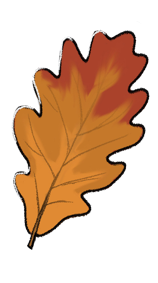Mustang Horses (American Indian Horses or Spanish Horses) were brought to the New World by the Spanish in the 1500s. These were the best horses of that time - a mixture of Barb, Arabian, and Andalusia blood. The native horses that inhabited the North American continent became extinct about 10,000 years ago. The horse was absent in that area until the Spanish Conquistador Cortez reintroduced them.
Indians of that era had never seen horses and thought riders to be the godlike creatures. The Spanish prohibited Indians to own and ride horses. But with the spread of the Spanish ranchos and introduction of breeding animals into the New World, the natives acquired this "Big Dog." The word "Mustang" is derived from Spanish word meaning "ownerless or stray horses."
This gain changed the life of Plain's Indians completely, transforming them from plodding pedestrians into nomadic hunters and warriors with cultures totally dependent upon horses. Their portable shelters turned into large tipis. They began to hunt only the best game, and they even developed the Horse medicine cult. Of all the remnants the Spanish has left, horses were the most worthy.
Mustangs were much better than cavalry horses. The United States Army found that the only way to conquer Indians is to take their horses away from them. Complete massacres of Indian horse herds made it possible. The Mustang Horse contributed to formation of many American breeds: the Morgan, Quarter Horse, American Saddlebred, Tennessee Walker, Appaloosa, Buckskin, and others. Mustangs remain now as they always have been. Mustang Horses are among the very few that has not lost its characteristics due to the whims of man.
More information
More information
Related categories 2
Sites 6
One of the largest registries for Colonial Spanish horse, and some BLM mustangs and ponies. The AIHR has different categories depending on the types of horses registered.
Includes breed history and standard, Sulphur Horse Registry, DNA marker article, herd profiles, photos, and stud services.
An umbrella registry for all Colonial Spanish Horses. The HOA accepts horses from the Spanish Mustang Registry, the American Indian Horse Registry, and other strains identified as Colonial Spanish.
Registry founded in 1988 to protect and preserve wild Kiger mustangs and the Kiger Colonial Spanish Horse in captivity.
Learn about the rich heritage, unique colors and markings of this fine breed.
Registry founded in 1998 for the purpose of preserving and promoting the Sulphur Springs Mustang and its domestic progeny.
Includes breed history and standard, Sulphur Horse Registry, DNA marker article, herd profiles, photos, and stud services.
One of the largest registries for Colonial Spanish horse, and some BLM mustangs and ponies. The AIHR has different categories depending on the types of horses registered.
Registry founded in 1998 for the purpose of preserving and promoting the Sulphur Springs Mustang and its domestic progeny.
An umbrella registry for all Colonial Spanish Horses. The HOA accepts horses from the Spanish Mustang Registry, the American Indian Horse Registry, and other strains identified as Colonial Spanish.
Learn about the rich heritage, unique colors and markings of this fine breed.
Registry founded in 1988 to protect and preserve wild Kiger mustangs and the Kiger Colonial Spanish Horse in captivity.

Last update:
January 29, 2022 at 6:35:20 UTC

Check out
Regional: North America: Canada: Nova Scotia: Localities: H: Halifax: Recreation and Sports
- Recently edited by shedragon
- Recently edited by shedragon